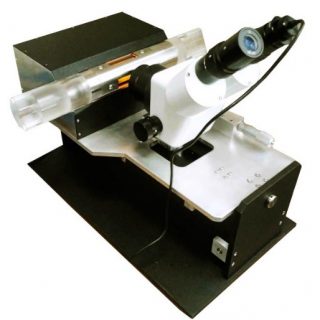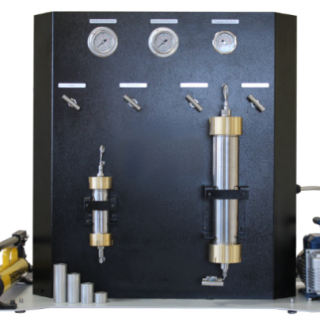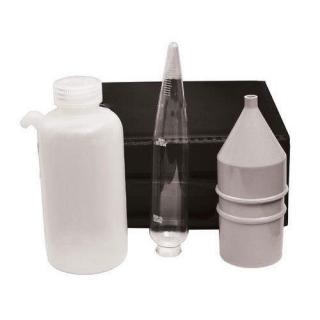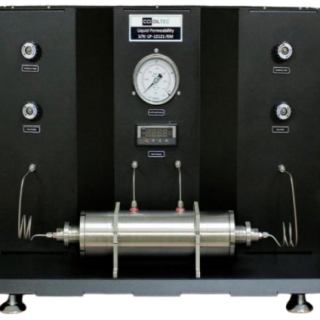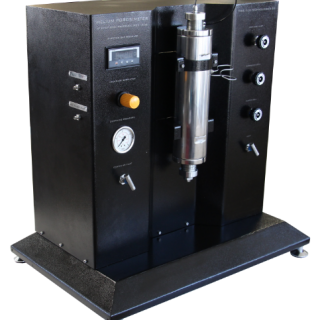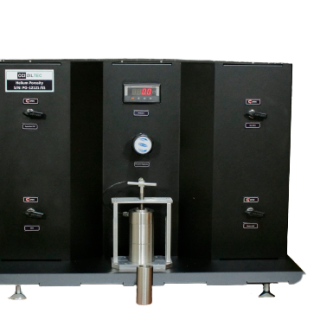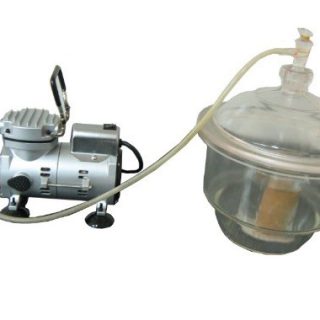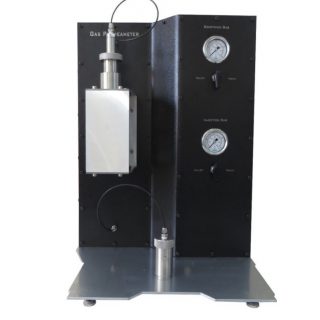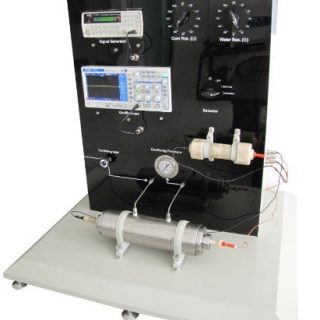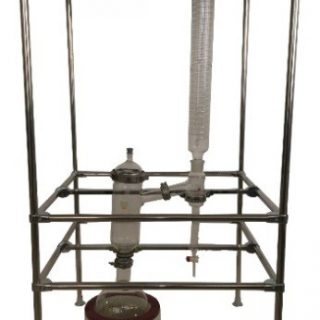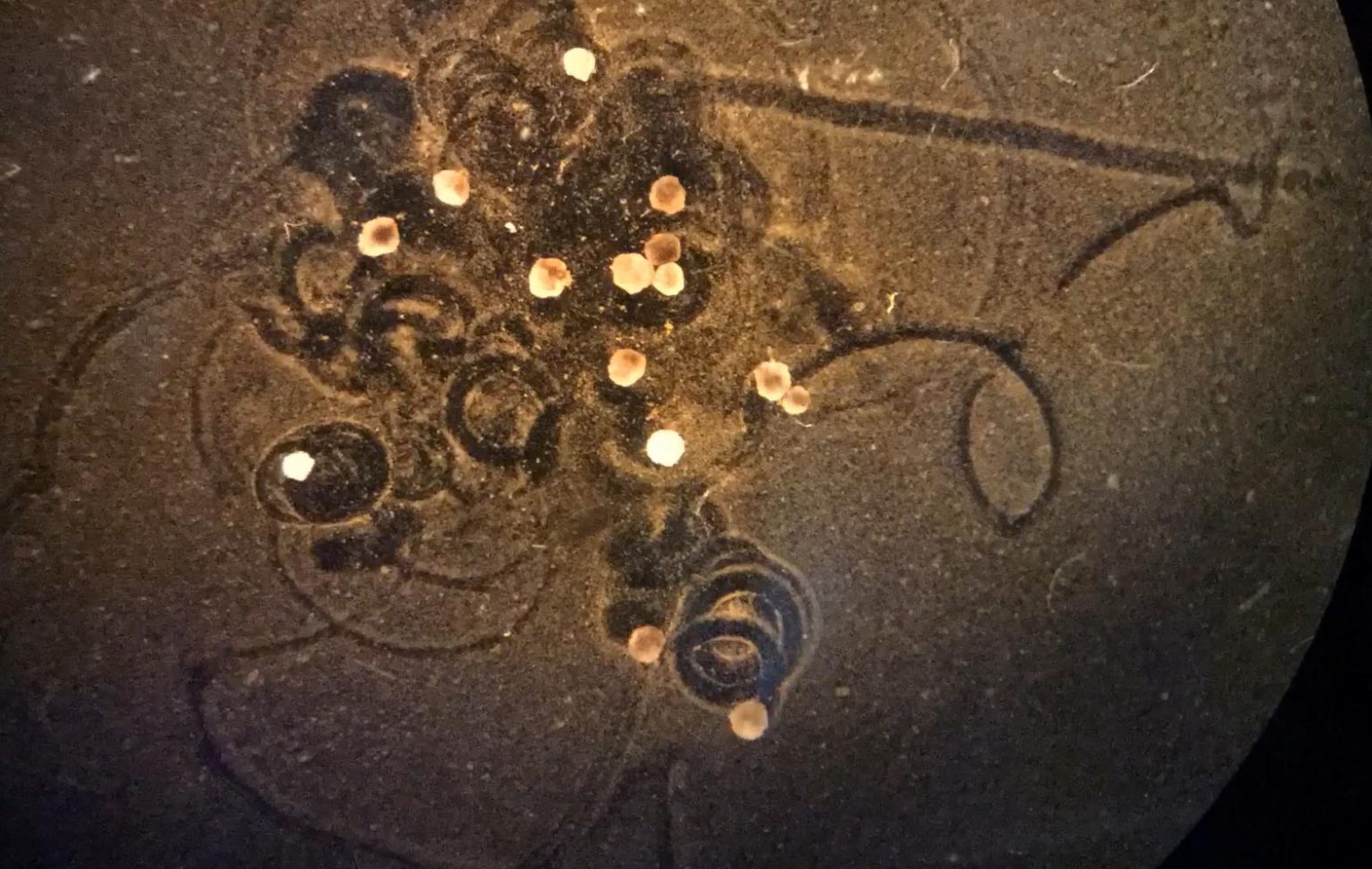Products
- Core Preparation
- Routine Core Analysis
- Special Core Analysis
- Reservoir Stimulation
- EOR
- IFT Measurement
- Fluid Sampling
- PVT
- Pump
- Drilling Laboratory
- Petroleum Laboratory
- Aniline Point Measuring Device
- Cloud Point Measuring Device
- Copper Corrosion Measuring Device
- Distillation Apparatus for Petroleum Fluids
- Ductility of Bituminous Materials Measuring
- Flash Point Measuring Device
- Ostwald’s Viscometer
- Penetration of Bituminous & Lubricating Grease Materials Measuring Device
- Pour Point Measuring Device
- Reid Vapor Pressure Measuring Device
- Saybolt Viscometer
- Smoke Point Measuring Device
- Softening Point of Asphalts & Tar Pitches Measuring Device
- Fluid Laboratory
Our group is among the knowledge-based enterprise pioneers in petroleum industry.

Category: Routine Core Analysis
Routine Core Analysis
Showing all 7 results
-
Helium Porosimeter at Confining Pressure
Read moreNormally, the porosity of the cores is measured without applying confining pressure on the samples. Although the confining pressure is not able to significantly affect the porosity value, it may lead to a huge deviation on the estimated value of the original oil in place. This device measures the porosity of the core samples while under confining pressure. This equipment can be used for grain density measurement at net confining stress. Moreover, Porosity is usually expressed as a percentage of the core plugs’ total volume.
Request for quote -
Helium Porosimeter
Read moreThe Helium gas Porosimeter determines the sample’s (1 inch or 1.5-inch diameter) grain and pore volume via an isothermal helium expansion and works based on Boyle’s and Charles’ law. Porosity is usually expressed as a percentage of the core plug’s total volume. The device tolerates an injection pressure of up to 10 bar (higher pressure is available upon request). Each sample matrix cup is interchangeable and is provided with stainless steel billets for calibration.
Request for quote -
Saturator and Gravimetric Porosimeter
Read moreSeveral methods have been developed to measure the porosity and pore volume of a sample. One method is called the fluid renaturation method. In this method, a clean and dried sample is weighted, saturated with a liquid of known density in a desiccator, and then reweighed. The weight change divided by the density of the fluid result in the pore volume.
Request for quote -
Liquid Permeability
Read moreThe liquid permeability device determines the absolute permeability of the plug-sized cores at ambient temperature using liquid (commonly used: water). In addition, this apparatus tolerates a confining pressure of up to 400 bar and is able to take into account the effect of upper layers on the permeability. This device is specifically designed to teach students the principles of liquid permeability efficiently.
Request for quote -
Gas Permeameter
Read moreThe gas permeability device is designed in a way that measures the permeability of plug-sized core samples with gas (air, nitrogen, …) at room temperature conditions while applying an overburden pressure of up to 20 bar using the steady-state method. This device is designed to determine the slip factor and Klingenberg permeability of the core plug samples.
Request for quote -
Electrical Properties Apparatus
Read moreThe electrical properties device is an instrument for ambient electrical resistivity measurement using core plug samples. The manual version of the device includes an ambient electrical properties cell for 1.5-inch cores up to 4 inches in length, a resistivity meter, and a brine resistance measurement dip cell. In addition, properties such as Formation Factor, Resistivity Index, Saturation Exponent n, and Cementation Factor m can be determined.
Request for quote -
Dean Stark-Extractor
Read moreThe Dean-Stark apparatus is a piece of laboratory glassware used in synthetic chemistry to collect water (or occasionally other liquid) from a reactor. It is used in combination with a reflux condenser and a batch reactor for continuous removal of the water that is produced during a chemical reaction performed at reflux temperature. The dean stark extractor can also be used to determine the fluid saturation of core samples.
Request for quote
Best offers
Customizing Orders Based On Customer Needs
Initial Setup & Installation
24x7 Support
Product Warranty & Guarantee
CIF Delivery
Know Us

The company provides new services based on state-of-art technologies, breaking into new markets, and eventually, stabilizing as a knowledge-based industrial group.
Read More
